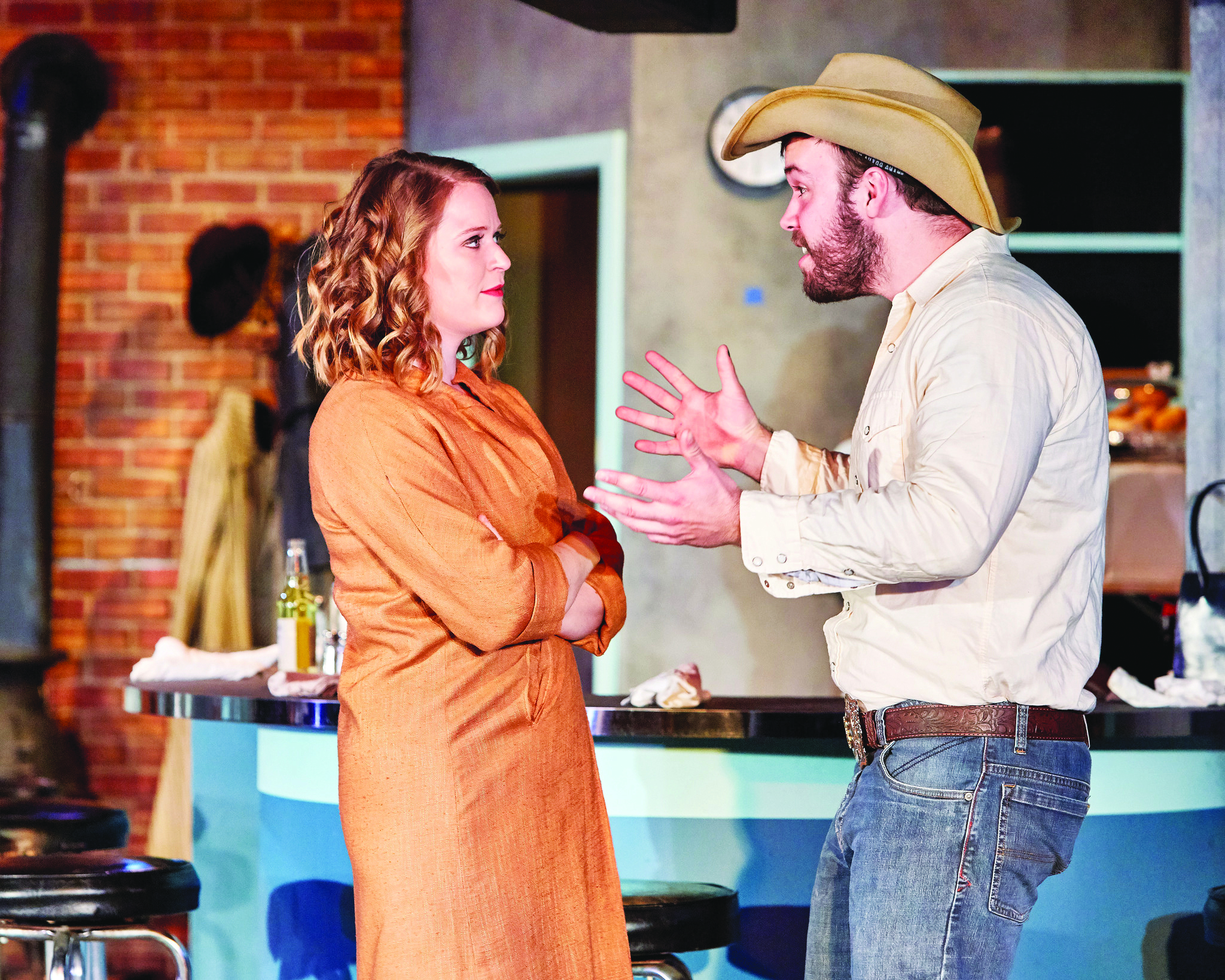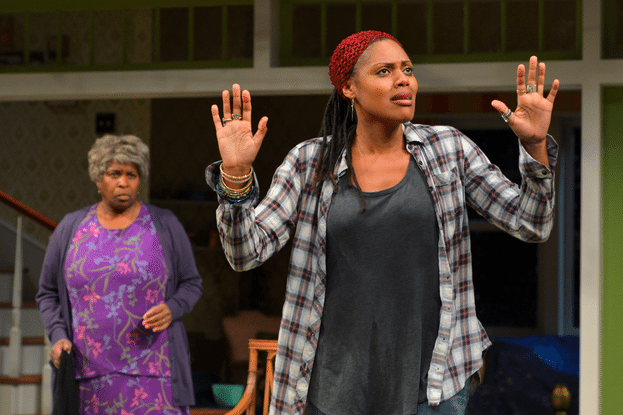By Charles Brousse
Unless they’re written by someone named Arthur Miller, Tennessee Williams, Edward Albee or Neil Simon, there’s little interest among today’s producers in mid-20th century American plays—even those that in their time were quite popular. That’s a shame, really, because some of the works by lesser-known writers, if left in their original form rather than being updated, afford a better glimpse into what that era was all about, more than their more famous cousins.
Case in point: William Inge’s Bus Stop, currently on view in a strong production directed by Christian Haines at the Ross Valley Players’ Barn Theatre.
Inge is a second-tier playwright who has been lost in the shadow of the just-named big four. He is generally remembered today for the film version of his 1955 comic drama that starred Marilyn Monroe in her heyday and for Picnic, a 1953 Pulitzer Prize-winning romance that later became a movie featuring William Holden and a very young, very beautiful Kim Novak. A Kansas native, during his brief period of national acclaim, Inge brought the lives and times of mid-Westerners onto the national stage, much as John Steinbeck and William Saroyan were doing for the far West, Carson McCullers for the South and Thornton Wilder for New England. Their characters are ordinary folk, whose stories resonate because they open a window into the lives and fortunes of people off the beaten track who might otherwise be totally ignored.
The ’50s are often dismissed as a low point in America’s cultural history. True, Dwight Eisenhower’s presence in the White House wasn’t exactly stimulating and Joe McCarthy’s communist witch hunt was a noxious influence, but a lot was going on under the surface that was barely noticed at the time. Like two titanic continental plates, the post WWII economic growth that raised the middle class to unprecedented dominance began to clash with a counterforce of disillusion and alienation.
In his prescient 1950 book, The Lonely Crowd, sociologist David Riesman claimed that underneath the affluence produced by market capitalism, many Americans feel isolated and adrift, opening a widening gap between themselves and the happy white picket fence family stereotypes then found in popular TV shows like Ozzie and Harriet, Leave It to Beaver and Father Knows Best. As if to prove Riesman’s thesis, in Bus Stop Inge takes us to Grace’s Diner, a smalltown cafe (nicely rendered by RVP’s scenic designer Bruce Lachovic) on the highway from Kansas City to Topeka, where a disparate group of characters gathers to wait out a fierce winter storm.
Grace Hoylard, the good-natured “grass widow” owner/hostess (Mary Ann Rodgers), her bubbly teenage assistant Elma (Ariana Mahallati) and Will Masters, the stoical, by-the-book local sheriff (Steve Price), are alone when the Topeka-bound bus rolls in and its passengers receive the discomforting news that the road has been closed by snow until further notice. One-by-one we get to know them.
Carl (Jeffrey Taylor), the married driver who has admired Grace from a distance for several years, contrives to get her to allow him into her bedroom for a “quickie.” Dr. Gerald Lyman (Ron Dritz), an alcohol-spotted, poetry-quoting academic with a taste for young girls, attempts to lure gullible Elma into meeting him for a “tour of Topeka’s cultural attractions.” Then there is blousy, disheveled Cherie (Laura Peterson), who has left her job as an “entertainer” at Kansas City’s Blue Dragon nightclub and boarded the bus with no final destination in mind, but hoping to escape both the club and a boisterous young cowboy named Bo Decker (Andrew Morris), who wants her to marry him and come to live on his Montana ranch. Unfortunately, Bo, accompanied by Virgil, his sidekick (Aeron Macintyre, whose singing and natural performance are among the show’s highlights), has followed her and the sparks fly as he presses his awkward courtship.
That’s the setup. All of these people have a strong loneliness quotient; some are helped by being stranded in close quarters, some not. Bus Stop features the kind of detailed observation that is rare in theaters these days. For us, observing them from our 21st century vantage point is a couple of hours, including intermission, well spent.
NOW PLAYING: Bus Stop runs through March 26 at RVP’s Barn Theatre, Marin Art & Garden Center, 30 Sir Francis Drake Blvd., Ross; 415/456-9555; rossvalleyplayers.com.









